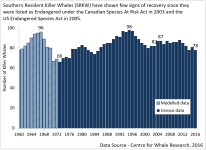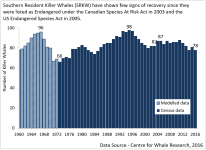localboy
New member
- Joined
- Sep 30, 2006
- Messages
- 4,673
- Reaction score
- 0
- C Dory Year
- 2007
- C Dory Model
- 25 Cruiser
- Vessel Name
- 'Au Kai (Ocean Traveler)
That is thousands of visitors and a huge chunk of the economy of the area... people come to see the whales - those people stay in hotels and eat in restaurants; rent mopeds, bicycles, and cars; buy groceries; shop in all the shops and galleries. Jobs will whither.
Amen. But again...it is western WA...


